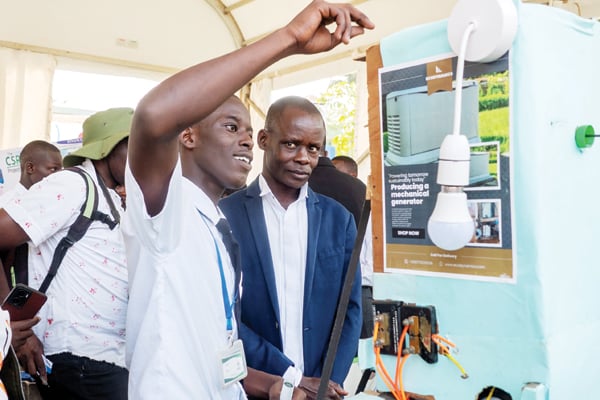Prime
Use of grades in assigning streams wrong, say experts

The Vice President of Tanzania, Dr Phillip Isdor Mpango (centre), at the opening of the conference in Arusha last week. PHOTO | ANTHONY WESAKA
What you need to know:
- Educationists say this arrangement lowers the confidence of those considered slow learners.
Recently, a parent in one of the schools in Wakiso District (name of parent and school withheld), was moving up and about to shop for her daughter as she returned to school.
As they walked the Kampala streets during shopping, the student’s colleagues could ask her which class stream she was in. However, her daughter, instead of replying, wore a sad face and looked in the opposite direction.
The parent got concerned and tasked her daughter to explain why she always got sad whenever she was asked about her class stream.
In response, the student said: “Mummy, I am in the worst performing stream, the reason I am not proud of saying among my school mates who know that learners in that stream are very weak in academics.”
During the first ever Regional Education Conference held in Arusha last week, several educationists across the region said this kind of arrangement in schools lowers the confidence of those who find themselves in the low performing class streams.
Mr Modern Karema Musiimenta from Stir Education based in Uganda, while chairing one of the sessions, reasoned that the teachers tend to concentrate more on the bright learners knowing that it is from them that they will get the best performers at the national examinations.
Equally, Ms Khadija Shariff, the chief executive officer of Milele Zanzibar Foundation and a member of the ALiVE team, said this tendency continues to secondary school.
“…So, these two categories of learners, as soon as the final examination results come out, then they transition to secondary, the government begins to put them in special schools,” she said.
She added: “The government automatically places better teachers there, they are given better resources and have access to teaching and learning materials to enhance their learning. So, they’re privileged, right, from the beginning. It is very detrimental to psychology and the self-esteem and confidence of students, especially those lagging behind.”
Mr Filbert Baguma, the general secretary of the Uganda National Teachers’ Union (UNATU), said the ideal situation would be to mix those considered slow learners with the fast learners.
“When you get the slow learners, to use a better word, and you keep them alone, and then you have the quick learners and you put them in one group, there is a scenario where by the time the teacher leaves this side and is going to the other side, he/she has a bias that he’s going to the worst class or the class that is not going to motivate him,” Mr Baguma said.
“This is dangerous because even the learners themselves will hate themselves, the school and the whole environment because they are always getting low marks and they are not getting enough support,” he added.
Dr Goretti Nakabugo, the executive director of UWEZO-Uganda, instead called for support of those who lag behind and bring the best out of them without isolating them.
“This is because there is a lot of learning that happens between peers. It’s true children are not gifted at the same level and we don’t learn at the same level, but those that we think learn a bit faster, they can actually also help the others if they are mixed up,” Dr Nakabugo said.
In a related development, the Vice President of Tanzania, Dr Phillip Isdor Mpango, said the region was making significant progress in education despite challenges such as teacher quality, financing, integration of ICT, and coping with emerging issues such as artificial intelligence .
“Since most of the above challenges are common to EAC partner states, they can be better addressed through joint and concerted efforts under regional platforms of the East African Community,” he said.




